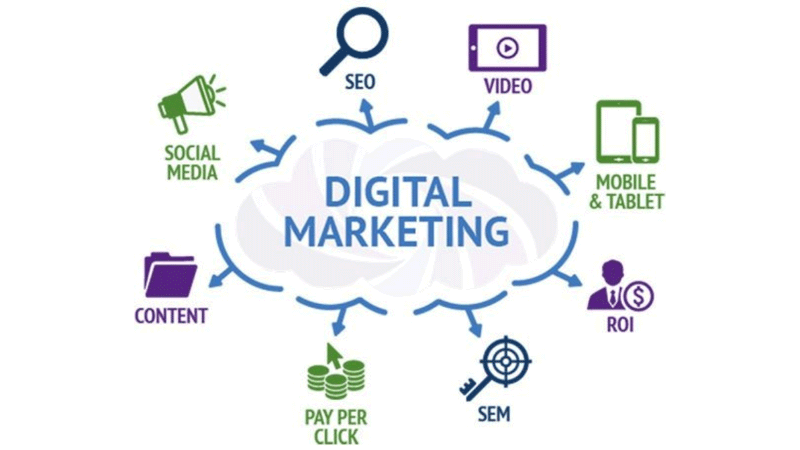
The scope of digital marketing in the world is vast and continuously expanding. With the increasing reliance on digital technologies and the growth of online platforms, businesses across industries are leveraging digital marketing strategies to reach and engage their target audiences. Here are some key aspects that highlight the scope of digital marketing.
Global Reach: Digital marketing allows businesses to reach a global audience. With internet connectivity becoming more widespread, businesses can promote their products or services to potential customers worldwide. Digital marketing channels, such as search engines, social media platforms, email marketing, and online advertising, enable businesses to target specific demographics and geographic locations, expanding their reach beyond traditional boundaries.
Cost-Effective Marketing: Digital marketing offers cost-effective alternatives to traditional marketing methods. Compared to traditional advertising channels like television or print media, digital marketing tactics such as social media marketing, content marketing, and search engine optimization (SEO) tend to be more affordable and can provide a higher return on investment (ROI). This makes digital marketing accessible to businesses of all sizes, including startups and small enterprises.
Data-Driven Insights: One of the significant advantages of digital marketing is the ability to gather and analyze data about customer behaviour, preferences, and interactions. Through web analytics, businesses can track and measure the performance of their digital marketing campaigns in real-time. This data-driven approach allows for continuous optimization and targeted marketing efforts, resulting in better results and improved ROI.
Personalization and Targeting: Digital marketing enable businesses to personalize their marketing messages and target specific customer segments. By analyzing customer data, businesses can tailor their marketing campaigns to individual preferences, interests, and demographics. Personalized marketing fosters stronger connections with customers, increases engagement, and improves the chances of conversion.
Mobile Marketing: With the proliferation of smartphones and mobile devices, mobile marketing has become a significant aspect of digital marketing. Mobile-responsive websites, mobile applications, and location-based marketing strategies allow businesses to engage with consumers on-the-go. Mobile marketing provides opportunities for location-based targeting, push notifications, and mobile advertising, enabling businesses to reach consumers at the right time and place.
Social Media Influence: Social media platforms have transformed the way businesses connect with their audience. Digital marketing leverages social media channels, such as Facebook, Instagram, Twitter, LinkedIn, and YouTube, to build brand awareness, engage with customers, and drive website traffic. Social media marketing strategies, including influencer marketing, social media advertising, and community management, can have a significant impact on brand visibility and customer engagement.
Career Opportunities: The growing scope of digital marketing has also created numerous career opportunities. The demand for digital marketing professionals with expertise in areas such as SEO, content marketing, social media management, data analysis, and digital advertising continues to rise. Digital marketing agencies, as well as businesses across industries, seek skilled professionals who can develop and execute effective digital marketing strategies.
The scope of digital marketing is not limited to a particular industry or region. It applies to businesses across sectors, including retail, e-commerce, finance, healthcare, hospitality, education, and more. As technology continues to evolve, new opportunities in areas such as artificial intelligence, virtual reality, voice search, and automation are emerging, further expanding the scope and possibilities of digital marketing.